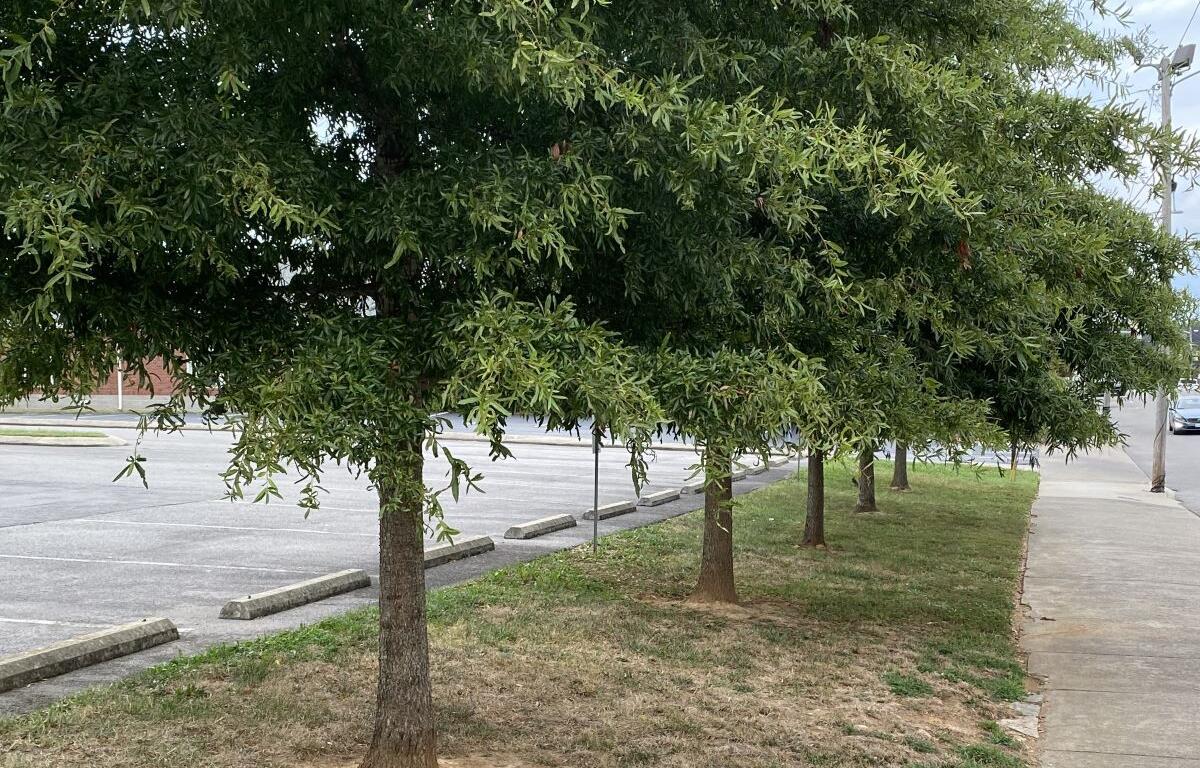CLARKSVILLE, TN (CLARKSVILLE NOW) – The City Finance Committee postponed an ordinance that would’ve updated the duties of the City Forester, the rules concerning trees and shrubs, and the rules for enforcing tree regulations.
The current tree ordinance has not been updated since 2009, and likely won’t be updated this year. The committee cited the need for review from the other departments and unsettled financial questions as the reasoning for their decision.
The ordinance was presented at the Oct. 28 Finance Committee meeting by Councilperson Karen Reynolds, who worked with City Forester Kathrine Killebrew as well as members of the Tree Board subcommittee for eight months to research and determine how the ordinance should be updated. Reynolds said this research included the duties of foresters and tree boards in other Tennessee cities. Both the Tree Board and the City Council agreed that changes need to be made to the ordinance, said Reynolds.
Proposed changes
The current ordinance gives the city authority over trees within areas owned by the city, as well as trees located on private property that pose a hazard to the public. This new ordinance would’ve expanded that power to include trees “encroaching upon” city property.
The rules of tree planting, spacing, maintenance and removal would’ve changed to follow the most recent guidance from the American National Standards Institute (ANSI). The ordinance would’ve also discouraged public tree topping, which – unlike regular pruning – kills trees. Additionally, it would’ve required a public utility to prune trees near powerlines using the updated methods.
DOWNLOAD THE APP: Sign up for our free Clarksville Now app
The ordinance would’ve created a time limit for departments to remove dangerous, potentially lethal trees from public property, whereas the current ordinance has no time limit. The Urban Forester’s Office would’ve also had the power to remove dangerous trees on private property after 60 days.
Problems with updates
All committee members stressed the possible financial impact of in-field inspections and training new staff.
Councilperson Deanna McLaughlin was opposed to topping restrictions. She said, “There are trees that are 100 years old that if they’re not chopped down, they could fall on houses. It’s a liability if we’re encouraging people not to chop down certain trees.”
Councilperson Stacey Streetman was concerned about giving the city the ability to remove dangerous trees on private property. If two property owners disagree over which side of the property a dangerous tree is on, then who pays for the survey to determine who’s responsible for it? Councilperson Keri Lovato said the city encourages property owners to work things out, but the language of the new ordinance could create conflicts.
Some department heads expressed concern that if they have more authority over private trees, then who pays if they accidently damage something on the property? Street Director David Smith said, “We’re not equipped to take down large trees under liability.”
Others were concerned about the additional costs like enforcement of rules, fencing for certain trees, and the cost of programs to protect certain trees.
City forester job description
The first proposed change to the position of city forester was to change the position title to urban forester, as it is in many Tennessee cities. The forester would’ve also been able to review any city public tree without size requirements. Another change for the forester would’ve been supervision over forestry staff. Current City Forester Kathrine Killebrew already advises the staff, but this change would grant her rank over them that she otherwise didn’t have.
Reynolds said she worked with the city forester in creating the ordinance, and that the forester already does most of these roles. She also said that by getting other departments involved they would eventually minimize the forester’s workload.
McLaughlin said that once the forester position is formalized with a job description it could cause a reclassification, and there are financial impacts to that. She argued the position is being tasked with more than what was it was intended to do.
What’s next
Reynolds said she was disappointed about the postponement. She argued that these measures were the bare bones of many foresters in the state. “We as a community are concerned about the lack of trees within our community, and the destruction of our canopy. As a Tree Board we feel like the city is not doing enough to preserve trees.” She said that every lot in Chattanooga requires a tree survey and approval from a forester.
Streetman said that’s not what the decision was about, it’s about the cost.
The ordinance will be reviewed by the affected departments and rewritten to address their concerns before the committee will vote on it again.
DON’T MISS A STORY: Sign up for the free daily Clarksville Now email newsletter


